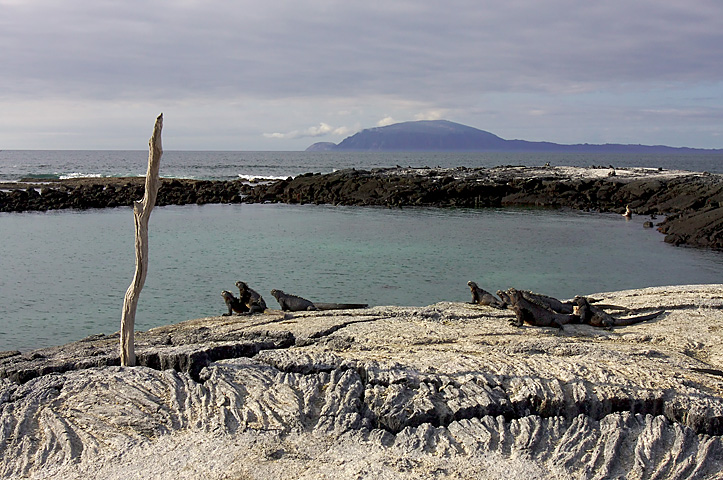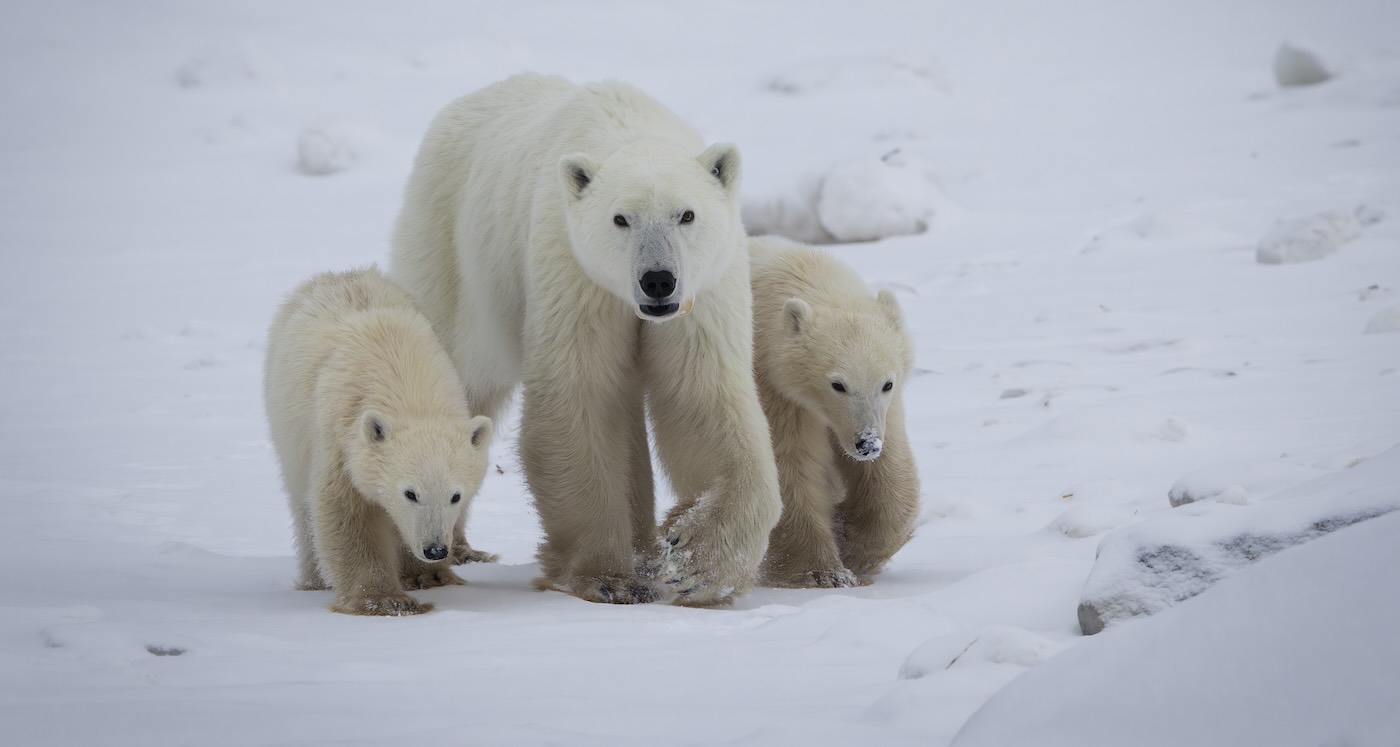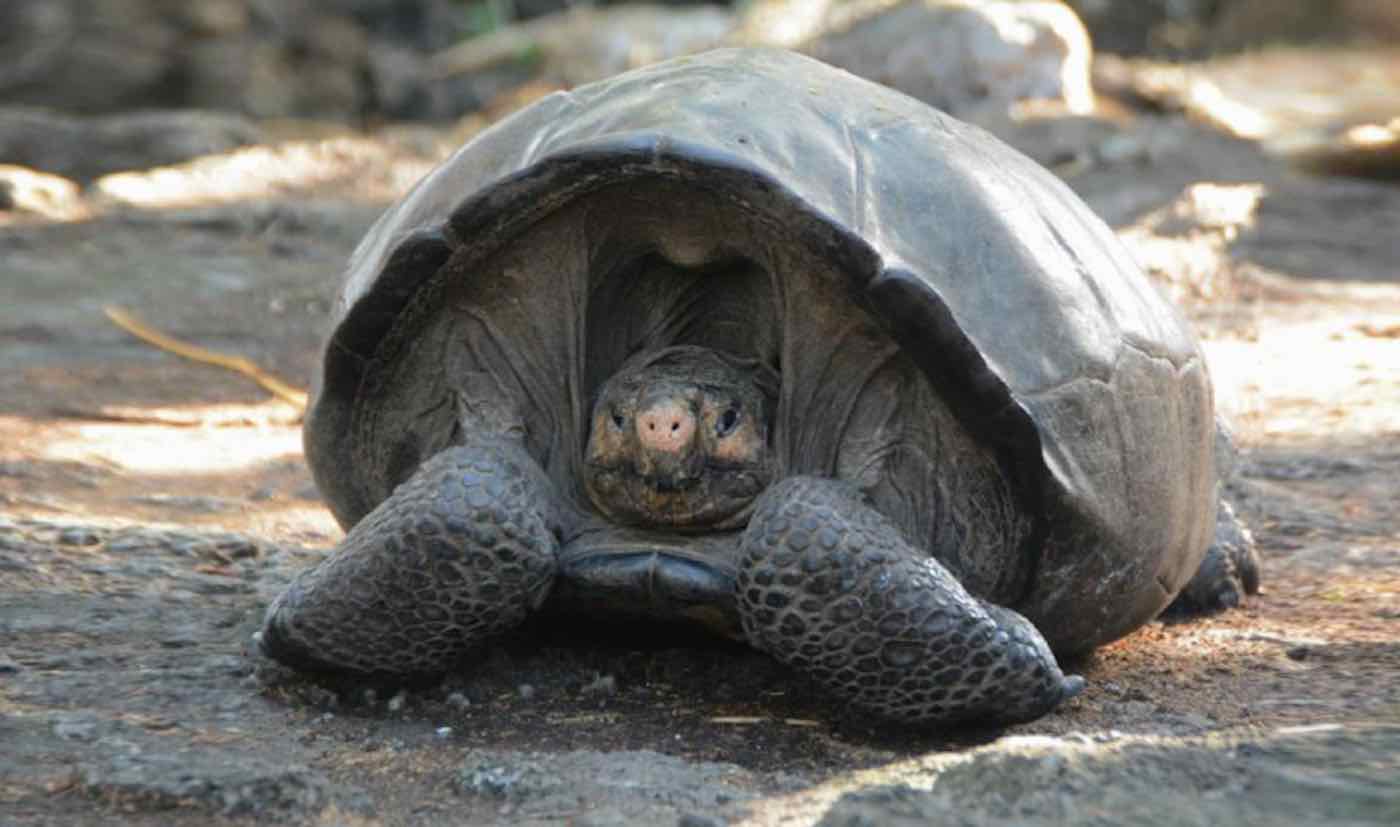The high hopes of scientists who found a 100-year old female giant tortoise on Fernandina Island in the Galápagos have been confirmed: genetic tests have proven it is a member of the species thought to have gone extinct more than a century ago.

Presumed to be lost for 112 years, the Galápagos Conservancy and the Galápagos National Park Directorate will urgently launch expeditions to find a mate for the female Chelonoidis phantasticus and save the species.
GNN reported on the discovery of the tortoise, called “Fern” in 2019, while Yale University began conducting genetic analysis to determine the creature’s exact species. Researchers had strong suspicions that it was a Fernandina, so launched expeditions on the island to look for more members of her species.
Soon afterward, park rangers reported sighting scat and tracks on the volcanic slopes, suggesting there could be more turtles around. If found, any remaining individuals will immediately be transported to the breeding center on Santa Cruz Island, where several species of the giant tortoises have been successfully bred back to stable population levels.
“One of the greatest mysteries in Galápagos has been the Fernandina Island Giant Tortoise. Rediscovering this lost species may have occurred just in the nick of time to save it. We now urgently need to complete the search of the island to find other tortoises,” said Dr. James Gibbs, Vice President of Science and Conservation for the Galápagos Conservancy and a tortoise expert at the State University of New York.
“We desperately want to avoid the fate of Lonesome George,” said Danny Rueda Córdova, Director of the Galápagos National Park Directorate in a press release. “My team from the Park and Galápagos Conservancy are planning a series of major expeditions to return to Fernandina Island to search for additional tortoises beginning this September.”
While one might think “what are you waiting until September for?” the landscape of Fernandina is dominated by an active volcano and a hard volcanic landscape, making long-term exploration difficult.
In fact, a January 2020 eruption delayed the first planned expedition to the island in the aftermath of Fern’s discovery.

RELATED: Millionaire Turned Quadriplegic is Giving it All to Save Wild Cats, After Finding a New Purpose
Meanwhile, the Galápagos Conservancy have set up a fundraiser for three separate expeditions to the island, equipped with tortoise veterinarians and helicopters to scout from the air, and transport any tortoises they find back to the breeding center.
The previous president of the Galápagos Conservancy, Johannah Barry, last year admitted to GNN that the old female was thought to be a Fernandina tortoise just because she was found there, but doubts remained because sailors in the 19th and 20th centuries often moved tortoises around.
“I can understand why people are excited. It’s either going to be, ‘wow, it’s a Fernandina tortoise,’ or ‘wow, it’s not,’” she sighed.
Wow. It is.
Spread The Word And SHARE This Breaking News With a Friend…





















Great!